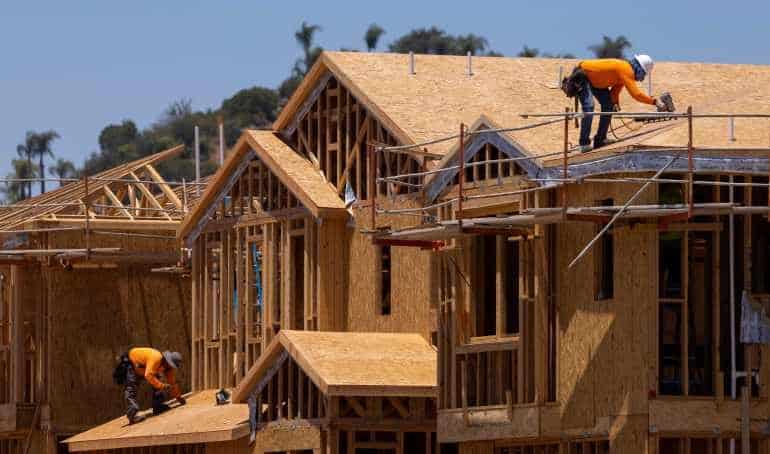Building a house could cost 30% more in developer charges under Brampton bylaw: report
Published May 29, 2024 at 12:17 pm

Fees required to build in Brampton are going up, but it won’t be developers who end up paying the bill.
Development charges pay for infrastructure to support new developments, but Ontario’s Bill 185 (Cutting Red Tape to Build More Homes) wants to eliminate a five-year phase-in to fast-track housing builds, leaving municipalities and taxpayers to pick up the tab.
Brampton’s current development charge bylaw is set to expire in August with a rate of $53,803 for a single or semi-detached home. That charge is expected to increase some 30 per cent to $70,000 and could fall on taxpayers to cover as the province wants to freeze rates for developers.
According to the 2024 Development Charges Study, DCs for single and semi-detached homes in Brampton could jump from $53,803 to $70,000, while row houses and other multi-dwelling units would increase from $39,639 to $55,222 over five years. The city has already frozen all DCs for major office developments.
Brampton is expected to see more than 52,520 new households built with 147,860 new residents by 2031, with growth continuing to 195,697 residents and 76,693 new homes by 2041, the study shows.
While the changes are being touted as a way to incentivize builders by the province, approving the increase means the city would be excluded from the $6 billion federal Canada Housing Infrastructure Fund which requires municipalities to freeze rates at April 2024 levels for three years.
A report from the Region of Peel in 2022 found freezing DCs would cost taxpayers $2 billion in additional infrastructure like roads, water, schools and childcare.
The report doesn’t include housing targets set by the province under Bill 23 (More Homes Built Faster Act) which wants to see Brampton build some 113,000 new homes over 10 years, a target Mayor Patrick Brown has previously said will need more external funding to reach.
The controversial plan could cost up to $8 billion in Brampton, according to city staff, while a report from the Region of Peel said the bill could actually reduce the amount of affordable housing stock set to be built over the next 10 years.
Brampton is also expected to take over Peel Region services including roads, garbage collection and water at a cost to taxpayers under recommendations from the provincially-appointed Peel Transition Board. The board’s findings haven’t been made public but Caledon says the move could result in a more than 70 per cent tax hike.
City staff will report back to council with options on how to move forward with the DC changes, and the updated bylaw is expected to pass on June 26.
INsauga's Editorial Standards and Policies


